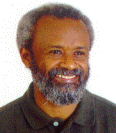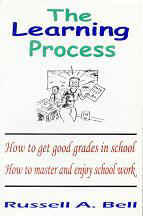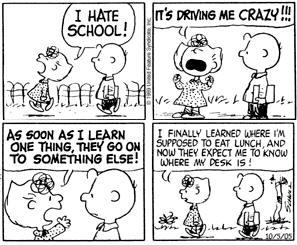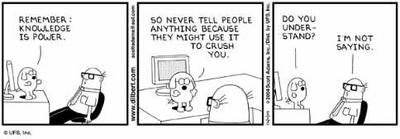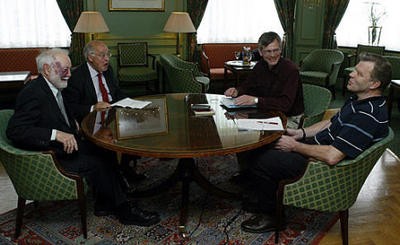
Michael Atiyah and Isadore Singer interviewed by Martin Raussen and Christian Skau in May last year.
When mathematicians talk about how they work and why they work, I listen. Basically because I like to have supported my ideas about what problem solving is and feels like. This week I read an interview (pdf) with Michael Atiyah and Isadore Singer.
Some highlights from the interview:
Atiyah: A theorem is never arrived at in the way that logical thought would lead you to believe or that posterity thinks. It is usually much more accidental, some chance discovery in answer to some kind of question. Eventually you can rationalize it and say that this is how it fits. Discoveries never happen as neatly as that. You can rewrite history and make it look much more logical, but actually it happens quite differently.
Atiyah: Almost all mathematics originally arose from external reality, even numbers and counting. At some point, mathematics then turned to ask internal questions, e.g., the theory of prime numbers, which is not directly related to experience but evolved out of it. There are parts of mathematics about which the human mind asks internal questions just out of curiosity.
Singer: I find it disconcerting speaking to some of my young colleagues, because they have absorbed, reorganized, and simplified a great deal of known material into a new language, much of which I don’t understand. Often I’ll finally say, “Oh; is that all you meant?” Their new conceptual framework allows them to encompass succinctly considerably more than I can express with mine. Though impressed with the progress, I must confess impatience because it takes me so long to understand what is really being said.
Atiyah: My fundamental approach to doing research is always to ask questions. You ask “Why is this true?” when there is something mysterious or if a proof seems very complicated. I used to say— as a kind of joke—that the best ideas come to you during a bad lecture. If somebody gives a terrible lecture—it may be a beautiful result but with terrible proofs—you spend your time trying to find better ones; you do not listen to the lecture. It is all about asking questions—you simply have to have an inquisitive mind! Out of ten questions, nine will lead nowhere, and one leads to something productive. You constantly have to be inquisitive and be prepared to go in any direction. If you go in new directions, then you have to learn new material.
Singer: ... when I try out my ideas, I’m wrong 99% of the time. I learn from that and from studying the ideas, techniques, and procedures of successful methods. My stubbornness wastes lots of time and energy. But on the rare occasion when my internal sense of mathematics is right, I’ve done something different.
Singer: I love to play tennis, and I try to do so two to three times a week. That refreshes me, and I think that it has helped me work hard in mathematics all these years.
Atiyah: I believe that if you do mathematics, you need a good relaxation that is not intellectual—being outside in the open air, climbing a mountain, working in your garden. But you actually do mathematics meanwhile. While you go for a long walk in the hills or you work in your garden, the ideas can still carry on. My wife complains, because when I walk she knows I am thinking of mathematics.
Other sources for listening to mathematicians talking about what they do is the book 'Mathematical People - Profiles and Interviews' from 1985, with a continuation in 1990 called 'More Mathematical People: Contemporary Conversations.' (ISBN 0817631917 and 0120482509). There is a similar book about computer programmers called 'Programmers at work: interviews with 19 programmers who shaped the computer industry' (ISBN 1556152116).
A sigh: when will we get MathConversations, podcasts where mathematicians talk about their work as in the interview above? ITConversations already exist for the computer people. Click here for an interview with the creator of php. The language that helps you bring this blog.
